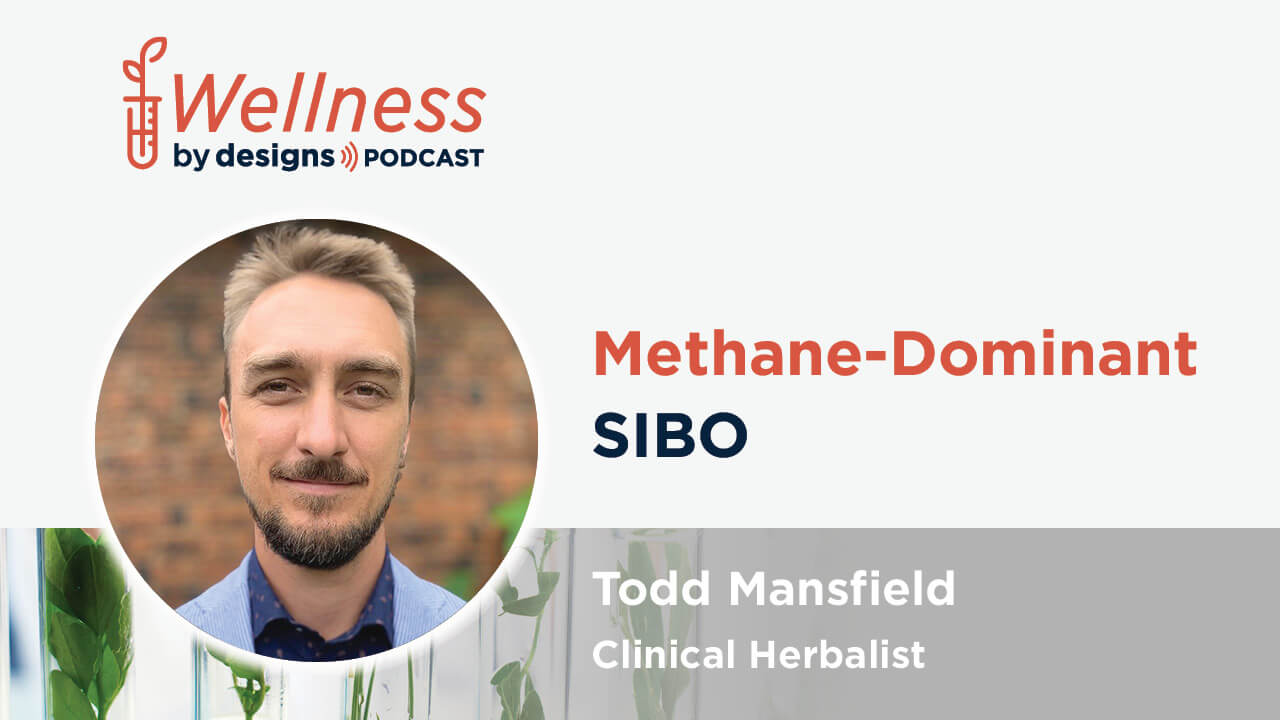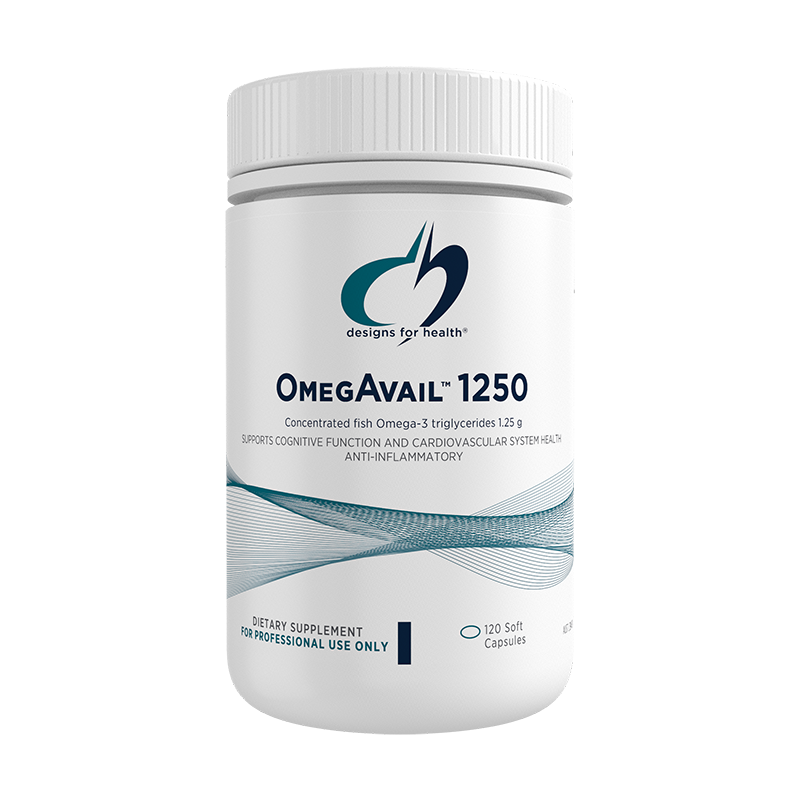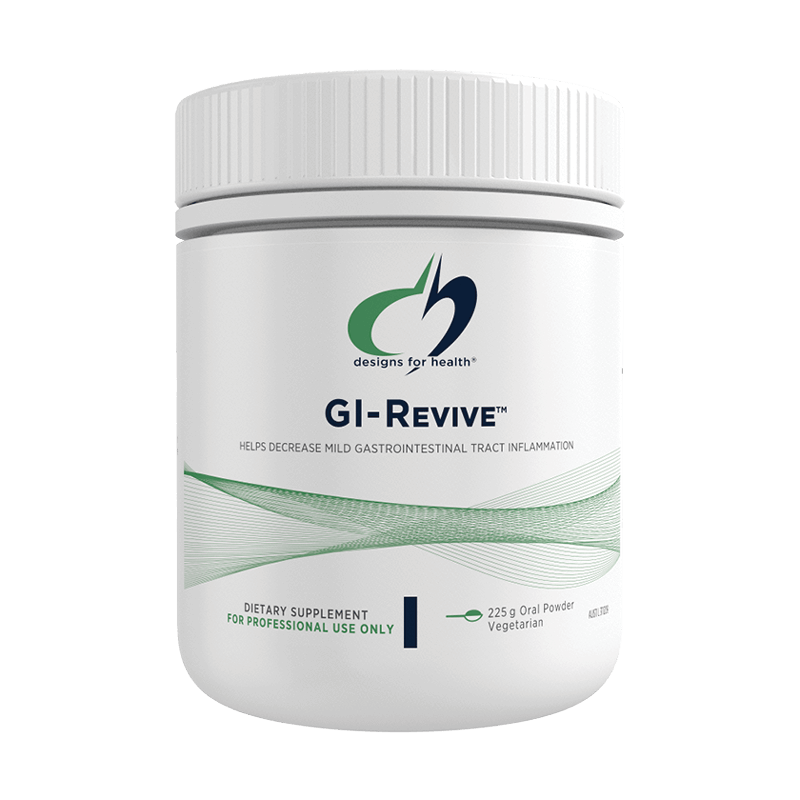

Joining us today is Todd Mansfield, a Clinical Herbalist practising in Byron Bay, Australia. Today we’re discussing Methane-Dominant SIBO.
In today’s episode, Todd discusses:
- SIBO types and presentation
- What LIMO is
- How methane-dominant SIBO/LIMO present
- How to assess your patients to offer a differential diagnosis
- Personalised management plans for these patients
- Herbs and supplements that might be useful in the SIBO/LIMO patient
About Todd:
Todd Mansfield is a clinical herbalist with a special interest in gut health and the microbiome. He is the founder of Byron Herbalist, an online resource for all things digestion.
Todd spends his time treating patients Australia-wide via video conferencing and researching digestive health. He regularly sees and treats SIBO, IBS, IBD and food intolerances. He is dedicated to sourcing and manufacturing the highest quality herbal medicine and individually formulates herbs for each patient’s needs.
Connect with Todd:
Website: www.byronherbalist.com.au
Instagram: @Byron.Herbalist
References:
https://link.springer.com/article/10.1007/s10620-007-0065-1
https://www.ncbi.nlm.nih.gov/pmc/articles/PMC7347122/
https://link.springer.com/article/10.1007/s10620-009-1012-0
https://synapse.koreamed.org/upload/synapsedata/pdfdata/0081jnm/jnm-20-31.pdf
https://link.springer.com/article/10.1007/s10620-012-2197-1
https://europepmc.org/article/med/29535443
https://pubmed.ncbi.nlm.nih.gov/17397408/
https://journals.physiology.org/doi/epdf/10.1152/ajpgi.00574.2004
https://www.gastrojournal.org/article/S0016-5085(12)61484-X/fulltext
https://www.sciencedirect.com/science/article/pii/S002203021830153X
https://pubmed.ncbi.nlm.nih.gov/20655445/
https://link.springer.com/article/10.1007/s11356-018-3152-2
Transcript
Introduction
Andrew: Welcome to “Wellness by Designs.” I’m your host, Andrew Whitfield-Cook. Joining us today is Todd Mansfield, the Clinical Herbalist practicing in Byron Bay, Australia. And today, we are going to be discussing methane-dominant SIBO and all that that entails. Welcome to “Wellness by Designs,” Todd. How are you?
Todd: Thank you, Andrew. Happy to be here.
Andrew: Pleasure to have you on, sir. Now, let’s first discuss SIBO. What types are there? What presentations do they sort of commonly come with? And also, what’s LIMO?
Todd: So we’re gonna quickly fall into acronym soup here. So, you know, if we’re talking about SIBO, we’ve got small intestinal bacterial overgrowth, and we can kind of divide it into three subcategories. We can see hydrogen-dominant SIBO, methane-dominant SIBO, which we’re gonna be talking a lot about today. It’s mainly what I treat in my practice. Makes up a big chunk of my clients.
And we’ve also got the hydrogen sulfide dominant SIBO. We’re just starting to tease that one out. There’s still a lot of kind of questions around hydrogen sulfide SIBO and just kind of SIBO, in general. If we’re talking about LIMO, large intestinal methane overgrowth, we’re talking about this kind of overrepresentation of methane being produced in the large bowel.
So, SIBO, methane-dominant SIBO, we’ve got the methane production in the small bowel, and then LIMO, we’ve got methane kind of overproduction in the large bowel. We can talk about how the client might kind of present differently, but there’s this big overlap between the two, and they’re often kind of happening at the same time as well.
Andrew: Got you. Okay. Well, let’s go through presentation. I mean, obviously, you spoke about methane-dominant SIBO. How do you assess patients on first intake, and then how do you get to a differential diagnosis?
Todd: Yeah. Great question. I mean, first off, and I think this is really important for clinicians listening, like the small bowel is totally being ignored by conventional medicine, most doctors, standard GPs, even gastroenterologists that aren’t kind of up on the latest research. They won’t have the fogies on kind of what SIBO is.
And I see these patients, you know, some of them have been unwell, presenting these symptoms where even on, like, an intake form, you’ll be like, “Oh, we’re gonna explore the possibility of SIBO straight off the cuff.” And they’ve been going around and around in circles trying to find a reason why they’re experiencing these symptoms.
So, number one, first and foremost, bloating and distension. As soon as I kind of see that on an intake form or a patient kind of tells me about that, I’m starting to think, “Okay, maybe the small bowel is involved.” With methane, it gets a little bit more nuanced, and that’s because of methane’s impact on the gastrointestinal tract.
And we’re gonna really dive into that today. There’s a few pearls that I’d love to share, you know, with any practitioner listening. But bloating and distension is really big particularly if it worsens after meals. Not always with methane. Like, that’s a huge pearl. Patients can be bloated and distended perpetually and it might not change.
But frequently, they’ll eat meals postprandially. They’ll experience this bloating and distension frequently. They’ll experience flatulence, sometimes burping, even reflux, like this really kind of upper digestive presentation.
And then when we’re really kind of, like, trying to tease it out, they might be experiencing things like joint pain after meals, fatigue after meals. Even this kind of nauseousness after meals as well, can be a clue that we want to be looking into SIBO as a differential for sure.
Andrew: Got you. But, obviously, we’ve got, you know, a start off simply, you know, with the cephalic phase of eating, chewing properly making sure that the digestive processes are happening, but then I guess, you’ve also got to think about other differential diagnoses.
What about Helicobacter pylori? What about peptic ulcer, cancer even? I mean, mind soup. How do you work that out on your intake? Like, do your patients often come as a referral from other health professionals like medical health professionals? Have they been everywhere seeing everybody?
Todd: A lot of them are looking for answers and so a lot of my patients, they’re very interested in the research. I do a whole lot of writing, do little kind of videos on YouTube, just trying to kind of reach out to these patients who are kind of going around in circles and say, “Look, there is a way to assess.”
And most times when we look at the small bowel, if these symptoms are kind of lining up, you know, we get a strike rate. If I suspect SIBO and we assess them properly, it comes back about kind of 85% of the time positive, and that sounds like a really big success rate on a positive test.
And I remember Dr. Mark Pimentel, who’s the guru of SIBO research. He was saying, “When they present with SIBO symptoms, test them for SIBO.” It’s not a sure thing but it’s definitely worth kind of evaluating and not just going on to the large bowel, which I really feel like most of our industry is overly focused on the large bowel and just neglecting that small bowel.
It’s the longest segment of the human gut. It’s important for nutrient digestion. You’ve got brush border enzymes that are kind of made and released there. Triggers this kind of pancreatic release of these pancreatic enzymes.
It’s important with kind of endocrine and exocrine function. It’s kind of like the powerhouse of nutrient absorption and then a huge piece immune function as well. But that’s just a huge piece of the small bowel.
Andrew: Peyer’s patches.
Todd: Yeah. That’s right. Yeah.
Andrew: The good old M cells and the Paneth cells. I remember them well. Kind of old physiology, anatomy, and physiology.
Todd: Exactly. Can’t go past them.
Andrew: Yeah. And you’ve also got, particularly in the Northern Rivers where you practice, you’ve got this big preponderance for blastocystis just another parasite. There seems to be this…you know. I don’t know whether it is really a concentration, but let’s say an awareness of the concentration there, blasto, dientamoeba fragilis, other parasites.
So how, again, do you tease apart? Do you look for symptoms, like, it’s not just wind but really smelly wind? Is it cyclical? What is your intake form, tease up, tease apart?
Todd: Yeah. So for me, it’s really that kind of postprandial, and we’re looking for a symptom flare or an exacerbation within an hour, sometimes particularly with methane. And, again, we’ll get into why? I’ll kind of stretch that out a little bit longer, and I’ll say, “Look, you know, within that two-hour window post-meals.”
It doesn’t have to be every meal as well. So that’s a big piece as well, but if you get a symptom flare, that’s really the time where this kind of food triggers and antigens, if we’re dealing with this intestinal hyperpermeability picture, they’re passing through that section, and that’s where we’re gonna see this symptom flare.
So, if I’m picking up on that, even if I’m suspecting, I think it is so well worth the money to do a couple of breath tests. That’s being really, really kind of just covering all our bases. And again, like I said, frequently, they’ll come back positive.
There is always a caveat around SIBO breath test interpretation. And I think we’re still trying to tease it out. There was, like, a North American consensus paper, a lot of the gastroenterologists that are deep in this are still undecided and on the fence, and we don’t really know how to interpret SIBO tests, but it’s more data.
And for me, you know, I hear some clinicians, they say, “Oh, look, breath testing isn’t the most reliable,” granted, but it still gives us data, particularly around methane as well.
Andrew: Yeah. This is the sort of thing. Like, I remember going through this, and I am still on that fence about the uneasiness of how sensitive and specific it is, but what else have you got? So, you know, there are many conditions where the testing or the therapy isn’t perfect but what to do, you know.
Tell me one doctor in the world who can medically treat growing pains because it doesn’t exist in any medical text. It’s not a disorder. So I get that, too. You and I were speaking on another time, and you know these gastroenterological capsules, the camera capsules that are used by gastroenterologists sometimes.
I’d yearn for the day when we can take samples temporarily through the small intestine and without contamination. So they’ll sort of sample it and take it within the capsule for release later on. I yearn for the day that we can actually sample the types of colonies that are growing in any one area. That’d be so interesting to talk [crosstalk 00:10:37].
Todd: That will be incredible. Yeah.
Andrew: Please invent it tomorrow.
Todd: That will be incredible. Yeah. I get on that. Smarter people than, you know, you and I. But I think that’s important. And again, you know, when we’re talking about this kind of over-emphasis of the large bowel, like a lot of the assessment methodologies and the testing, that’s developing in leaps and bounds.
And it’s just because it’s easier to sample. You sample the stool. You look at what’s going on. Our technology for assessment is becoming better and better. We’ve gone from culture and microscopy to the 16S rRNA, like DNA-based. And, you know, for most of these tests that are available to the general public, 16S rRNA can specify down to the genus.
Now we have on the Australian market, thankfully, this great, almost like research-based stool testing for the general public. You don’t even need a script from a practitioner to get this, and it’s shotgun metagenomic testing, and we can get all the way down to the species, and then even the strains within the species as well.
So, that is just developing like breakneck speed. It’s bleeding-edge science. And you’ll see these bugs come back. They just have numbers. They don’t even have names yet. So the research hasn’t caught up to the technology. We still kind of don’t really know what these bugs do, how they impact the digestive tract.
The small bowel, on the other side, it’s right in the middle of our digestive tract. Culture, sorry, the aspirate and culture, that was the “gold standard” for SIBO testing. It’s not terrible but it’s just never done because it’s super expensive and it’s invasive. You’re scoping and most people, you know, you’re putting them under and it’s just…
I have never seen anyone come to me with a SIBO diagnosis done that way. So we get the breath testing. There’s an art and science to it. The more patients you see and the more tests you see, the more you can line up that kind of clinical practice and that experience to say, “Look, these are the treatments that help most people in your position.”
If they don’t, you know, like you mentioned, what are we gonna do? There’s always these kind of second layers of herbs, and prebiotics, probiotics, and then even a third level. And really, when we’re talking about methane, you know, most patients improve.
I probably get about 75% of methane patients depending on their numbers that see significant improvements in two or three months, and there are kind of important symptoms that they’re trying to resolve, but there’s always those stubborn patients where you’re looking for that little piece that’s gonna move the needle, and improve the bloating, and improve the distension.
And the big, big, big headline symptom for the majority of methane producers, constipation and gut transit time delays. So things are just tracking through the digestive tract a lot lower than, you know, kind of the healthy individual. And that’s probably why they’re experiencing so many symptoms.
Andrew: Right. Can I just touch back on that shotgun metagenomics test? So, they can elucidate not just the genus and species but down to the strain. They’ve, obviously, got to match that up with certain strains that have been strain-typed. So then you’re gonna have a hell of a lot in our guts that isn’t strain-typed.
Because you’re talking about metagenomics, so you’re talking about DNA stuff, at least you’ll get more than what we “culture” because, for instance, segmented filamentous bacteria. People have heard me just rave it on about this thing. And the problem is that it’s really hard to culture.
If we use this culture medium and that doesn’t grow in it, then it’s not gonna be seen. “It doesn’t exist” in the test that we do. So the problem is often the tests that we do aren’t sensitive enough to pick up everything that’s in our gut. Even then, when you’re looking at metagenomics, does that look also at say fungi, or is it only bacterial?
Todd: Yeah, the kind of majority that they’re looking at is bacterial. This one lab that I’m thinking of, you know, it’ll kind of tell you a little bit about kind of blastocystis subtypes and Candida. It’s also looking for Saccharomyces cerevisiae but the majority of this one is bacterial and that just touches on the perfect point.
If tests were free, I just order them, right? But it’s differentiating, yeah. Your history, your presentation, and the clinical skills, right? That’s the kind of melting pot where you kind of tease out, “Look, I think we need to refer you back to your GP and do an H-pylori breath test.
I think that’s important,” or, “Look, I think we need to do a SIBO test frequently,” and this is kind of more common lately. I’m doing small bowel assessment, and I’m also doing large bowel assessment, and I will choose based on, you know, kind of a diagnosis.
So, for example, if I’m working with inflammatory bowel disease, I want to know exactly what the makeup of that bacterial balance is, so I’ll go more for, like, the shotgun metagenomics, whereas if we’re looking for, “Look, I’m experiencing abdominal pain, I get bloating after I eat lentils, and I’m constipated,” I say, “Okay, look, let’s assess you for SIBO.”
I’m putting my money on methane. I have totally been wrong, and that’s why it’s so important to test. It’s pretty easy to pick, but there have always been these got-you moments where a breath test will come back, and your differential’s methane for sure.
And they’re dealing with, like, a hydrogen-dominant SIBO which is generally loose watery bowel movements, right? That’s pretty common, but they’ve got constipation, so there’s something else going on there that we have to tease out.
Andrew: Yeah. Well, you know, I mean, this goes down to that differential diagnosis. You can also have physical issues. What if they’ve had multiple surgeries, they’ve had napindecamine [SP], they’ve got adhesions? What if they’ve got rampant hemorrhoids?
You know, I’ve seen horrible wind, seen horrible… I’ve seen patients that have had horrible problems with wind when they’ve had really bad hemorrhoids. So there’s a microbiome or microbiota changes, even in the rectum, you know.
Todd: Absolutely. Yeah. And structural abnormality is big.
Andrew: That’s the expert of practice, isn’t it?
Todd: Exactly. And the more of these kind of unusual presentations. I can think of one patient that I just saw recently and did not have even SIBO kind of, in general, on the differential. And, you know, he managed to get a breath test from the doctor because he’s quite unwell, and, you know, not the worst levels of methane but definitely getting up into the mega methane picture both large bowel.
And we can see that as this kind of, you know, parts per million on the baseline before they consume the sugar to test for SIBO, and then also small bowel you see that rise and that overproduction of methane within that 100-minute mark. That’s kind of a gray area, but that’s what we’re looking for.
And when we’re choosing our tests, you know, in a perfect world, I would run a lactulose, a glucose, and a fructose breath tests on separate days, and we would get the most kind of granular data. And you just kind of like… I mean, I guess you can still miss SIBO but the chances kind of are quite a bit lower.
Frequently, I’ll do lactulose and glucose. That’s just because testing isn’t free and also SIBO breath testing is a little bit painful. There’s a whole process. What I’m pretty sure, I might just go straight for the lactulose, patients save money. And then if it comes back with this abnormal reading, we say, “Okay, look, let’s circle back,” and maybe we’ll follow up with another breath test just to be 100% sure.
Andrew: Got you. Okay. So let’s dive into this typical management. Obviously, it’s gonna involve, you know, dietary modulation. The FODMAP is the hero diet of anybody suffering IBS, but what I’m picking up is that this might not actually help some of these patients. Is that right?
Todd: Yeah, absolutely. And, you know, I don’t want to kind of bag the low FODMAP diet too much, but I will rarely, like, restrict FODMAPS completely, particularly with the methane producer. And that’s because, number one, I haven’t found a low FODMAP diet to be curative.
Great, great example I tell everyone that I suspect has SIBO or everyone with a SIBO diagnosis. They all come to you. They say, “Look, we got to go low FODMAP. It makes me feel better.” Great. Limit, restrict, eliminate those foods that make you symptomatic.
That’s important. We want you feeling better. But this story is of a patient who, you know, didn’t know she had SIBO. She went low FODMAP on the recommendations of a previous practitioner, kind of cured her symptoms maybe like 85% cured.
She followed this low FODMAP diet strict, strict, strict for seven years. Every time she ventured out and ate a FODMAP, she would wind up with symptoms. So I said, “Look, let’s test you for SIBO.” Seven years of low FODMAP, worst case.
One of the worst cases of SIBO I’ve ever seen. So it’s not curative, makes patients feel better. You get a bit of a buy-in and then you can kind of, you know, while they’re feeling better, deal with that root cause. On the methane front, I’d love to share some of these kind of herbs that I love using and I find great results with.
I use a heck of a lot of prebiotics in my clinical practice. There’s good reasons why in the evidence and clinical practice, and occasionally, I’ll use probiotics as well with that methane presentation as well.
Andrew: Got you. I love that, how you’ve said. It is a great bandaid, but it’s kind of like giving morphine for a broken leg. Takes away the pain, largely, doesn’t fix your broken leg. And I don’t know, I always have issues with bandaids. Like, they’ve got their place, but recognize what it is. It’s kind of like people that have been long-term on anti-candida diets.
They’re the most emaciated patients you’ve ever seen, and then nutritionally deficit. So I’ve always had sort of issues about, “Well, why shouldn’t we be fixing the terrain while we’ve got them on this diet that’s reducing their symptoms so that they’re not feeling as lousy? Shouldn’t we then use this time as a blessing to do some actual repair to the problem?” I love that about you. It’s fantastic.
Todd: Yeah, couldn’t agree more. And I think that’s important. You want a feeling good and you want to treat the root cause as you mentioned.
Andrew: So let’s go into some of these roots herbs. Sorry.
Todd: Excellent. Excellent.
Andrew: Best humor I could do. It’s late in the day. So what sort of herbs and supplements do you tend to prefer using? You mentioned lactulose just before.
Todd: That’s right.
Andrew: What do you like? What do you tend to avoid as well?
Todd: Yeah, yeah. I like that a lot. So, for me, as a herbalist, you know, you can see it here we’re in our dispensary now, I use liquid herbs. That’s my kind of first cab off the rank. Custom formulations. So that’s really important. And we’re treating the individual that is so darn important. Like, I can’t stress that enough.
I’ve seen patients come to me chronically constipated, you know. They’re skipping three, four days. They’re bloated, they’re distended, they’re getting reflux, and they’re not feeling great either, right? Like, quite fatigued and achy. Of course, you need to be having a bowel movement every day.
If you’re not, that kind of main detox channel is impaired. It is kind of not working properly. So dealing with the symptoms when patients first come to me. Frequently, methane patients are constipated. That’s almost a given not always, and stimulating and getting those bowels back on track is really important.
So it depends on how constipated they are. Initially, we’ll do the test, we’ll get some results, we’ll see the kind of levels, just in my head. There’s no research and I’ve got loads and loads of references that I sent over that, hopefully, they’ll load up in the show notes.
But personally, for me, 10 to 20, 25 parts per million, that’s a pretty kind of mild presentation of methane. You know, 25 to 40 or 50 parts per million is moderate. Anything above 50, we’re getting up into those extreme levels. And I’ve seen patients off the charts like 150 parts per million of methane.
Those patients aren’t having bowel movements. Like, they might have a bowel movement once a week, and that’s because they’re using these suppository laxatives. So, my question is, how are you going to feel if we get you having a bowel movement once, twice a day? And with those patients, we’ll pull out the Enteroquinol glycosides.
I know definitely from my education, have great education but, you know, every textbook that you read, short-term use-only. It is so much better for these people to be having bowel movements than to be using these Enteroquinol glycosides in moderation, right? We’re not using Senna. I use a whole lot of Turkey rhubarb.
That’s kind of the next level down from something like cascara. I will use cascara if I have to. That’s kind of second-level when things aren’t moving. And then right at the bottom of that, kind of totem pole, would be something like yellow dock, which I don’t use a whole lot.
But there’s good data showing that the Enteroquinol glycosides and even the tannins in Turkey rhubarb are anti-methane as well as being this laxative. So it’s a double whammy. It’s a formula in one herb.
Andrew: Yeah, but that’s almost counterintuitive. In the olden days, we used to use tannins for diarrhea, but this is actually inhibiting the methanogenies, I hope I said that right, so that they’re the causation or part of the causation of constipation. So you’re taking away the signal. So sort of in moderation. That’s interesting.
Todd: And you picked up on that immediately, like, tannins, you know. And all of our data, for the most part, comes from methane mitigation in livestock. And sharing that with a patient of mine back in the day and he goes, “Well, I’m not a cow. Like, how’s that relevant?”
Totally understand that, you know, it’s animal data, but for a lot of these kind of studies, it’s the best we have. And tannins, above and beyond most, they are the volatile oils, they are very anti methanogen. So big ones that I’ll use frequently would be things like cinnamon, which you’re absolutely right. They use as like an antidiarrheal.
So it’s kind of this cross signal where a moderate amount of cinnamon in the mix can really help kind of move the bowels, particularly when you’re getting good exercise, you’ve got the prebiotics in, you know, a nutritionist might use something like a magnesium to soften the bowels, good exercise, electrolytes.
There’s this whole kind of raft of supportive therapies. Priority number one with a methane-dominant SIBO patient that’s constipated is just let’s get those bowels moving, and let’s kick that gut transit time back into gear because that’s what methane does to the gut. A healthy individual, 30% to 62% have methane, but it’s really when it slows down that gut transit that patients wind up with all these symptoms.
Andrew: Got you. And you’ve mentioned lactulose quite a few times. What about the…? I mean, the historical use of lactulose was for constipation. You increase it slowly and you end up…the joke is, till you’re wiping yellow. So do you ever get quite heroic in the use of lactulose? Do you tend to titrate it up?
Todd: Lactulose is a difficult one to work with. So there’s a little bit of a kind of misunderstanding like I definitely have this misunderstanding around lactulose. You use this lactulose to test for SIBO. So patients think, “Look, I tested for SIBO. It shows that lactulose feeds these bugs,” which isn’t quite correct but that’s too nuanced.
“Why would I supplement lactulose?” I bring in lactulose on the tail end of the treatment, and really that’s in the maintenance phase. I won’t start with it because it’s a very fast-burning prebiotic, hits the large bowel, gets fermented pretty quickly, and patients wind up more bloated and gas-ier.
On the other side, the large bowel, we’re always working on the large bowel as well as the small, that’s just like an added benefit, all of these polyphenol-rich herbs, that I’m a huge fan of in whole herbs. Things like oregano, also things like thyme peppermint as long as it’s tolerated. That can be hard one to work with with reflux patients, clove as well.
Not only do they have all these beautiful essential oils, carvacrol, thymol, eugenol, cinnamaldehyde, and niacinamide. They’re also full of these tannins and polyphenols that work on the microbiome to balance, and then you get this balanced microbiome if we’re treating LIMO, so kind of methane in the large bowel.
And then ongoing, we can bring in something like lactulose on the other side of active treatment, and this stops from sliding back into this relapse which is so darn Coleman when you look at the literature. It’s because they haven’t corrected why, you know.
SIBO is a symptom, right? And I know that kind of doesn’t make any sense and, you know, it’s probably not technically accurate, but there’s a reason why this bacterial overgrowth or this archaeal overgrowth has happened in the small bowel. It’s not normal, right? So something is broken down in that whole process. With methane, it’s delayed gut transit time.
Everything just backs up and you just have to kind of kick it into gear, reduce the methane, balance the large bowel, and then send the patients on their way to focus on their stress management and getting good exercise, and keeping up with their kind of prebiotic and their fibers and stuff.
Andrew: Right. And with regards to bloating and wind, what about good old things like activated charcoal and bentonite? And also, there was a lot of talk about a stimulant for the migrating motor complex, the MMC.
How effective are they? I remember, like, one of the things was low-dose Naloxone. That’s obviously a prescription thing, but what other things do we have in our arsenal that we as natural medicine practitioners can use?
Todd: Yeah. Yeah. I love that. So the big one there, like prokinetics, they can be really darn helpful. And if we’re looking at hydrogen-dominant SIBO, frequently, the root cause, right? We’re looking for why was this food poisoning event?
And most patients that you talk to with loose watery bowel movements and they haven’t been well since their trip to India or Bali, they’ve had a pretty significant food poisoning event, and that’s kind of like the weak chain, the weak link in the chain there.
On the methane side of things, prokinetics can be really, really helpful. And again, this is where we have this beautiful kind of concept of, like, one herb is a formula because something like Turkey rhubarb, it’s a laxative, it’s got tannins in it, and it’s also a pretty, pretty potent prokinetic, so it’s stimulating that gut motility.
And, you know, whether that’s acting on peristalsis, the smooth muscle contractions to kind of regulate the digestive flow, but there’s this whole raft of other herbs. And as a little side project, I love diving into the “Chinese Materia Medica,” and they have worked out so many prokinetic herbs really based on this kind of post-operational stasis.
I’m sure you’ve kind of come across this, like most patients that are having surgery done on their bowels will experience a little bit of the stasis post-surgery. Most of the time it goes away.
Andrew: Oh, like a “spastic ilium,” that sort of…
Todd: Exactly. Yeah, yeah. And most patients, it goes away and it’s fine. In China, they’ve done really good studies with formulas that have things like Magnolia bark. That herb does everything. That’s amazing. The other herbs in this formula, ginger, the other big herbs in this formula like Zhi Shi.
So a lot of patients, or sorry, a lot of practitioners, you know, naturopaths and herbalists, they’ll know chen pi, right? And so that’s the mandarin peel, but Zhi Shi is this immature bitter orange and it’s got this pretty potent kind of prokinetic action on the gut as well.
So you put them all together in this custom formulation based on the understanding of what’s happening within this kind of… It’s not a syndrome but like SIBO presentation varies from one patient to the next, you know, almost for sure. Yeah.
Andrew: Yeah, yeah. I noticed that you’re talking about Magnolia. One of the effects of Magnolia, it’s not just… With regards to Magnolia that it’s used for stressful situations, IBS is a stress-related condition. Do you employ stress-acting herbs that also might have a visceral effect?
So things like, for instance, kava, wild gum, any of these good old chamomile to help relax not just the patient but their guts so that… Forgive me, I noticed you haven’t said cramping a lot, it’s more bloating, but do they have a positive effect in methane-dominant SIBO? Or are they more in hydrogen-dominant SIBO?
Todd: Yeah. I love that pickup, you know. There’s a heck of a lot of cramping, and a lot of that again is from that delayed gut transit and almost like this gas pain. So it’s very sharp, very stabbing. It’s almost like the vents. If people are burping a lot, or they’re having a lot of flatulence, it’s not great but it’s your vents are working.
It’s when that gas gets trapped in the gut, you wind up with this pain. For me, I’m always choosing kind of the best bang for the buck. And so I don’t use a whole lot of spasmolytics initially, but focusing on stress can be an absolute game-changer, huge, huge, huge pearl, and it’s something that as clinicians, we pay so much lip service to.
The implications of bringing someone out of that stress, that fight-flight mode into rest and digest, just absolutely huge. And you can go into the details around the vagal nerve being intubated by the parasympathetic nervous system, and it’s mainly this afferent nerve, and it gets complicated, but managing stress and kind of resolving and balancing that nervous system can be… You know, people’s suggestion can turn around almost overnight.
Andrew: Got it. And what about actively reviewing patients? And I’m gonna sort of tie this up as the last question I guess, but with regards to reassessing patients, and how they’re going, and what sort of results can they expect and, indeed, when? What happens with relapse, for instance, which is a common complaint with IBS sufferers?
Todd: Yeah, I know, it’s absolutely huge. And, for me, when people relapse, the question is what was the root cause, and have we addressed it? If we’re looking for results, I’m looking for significant improvements, and if we’re not getting those results, particularly with methane, which can be stubborn in a small subset, we’re looking for reasons why.
So, like you mentioned, the nervous system, gut transit time, we’re getting all this data from testing, feedback from the patient. Everything is coming in, and we’re reviewing. For me, you know, again based on the labs, I like to draw a little line in the sand and I say, “Look at kind of month, two or three. Let’s pause everything and let’s have a really honest discussion about where we’re at.”
As a clinician, my number one priority, top priority, almost the only priority is getting my patients better. So whether that’s acupuncture, whether that’s visceral manipulation, whether that’s spending the money that they’d come to see me actually on going out, and watching a movie, and eating terrible food with their partner, and then feeling better on the nervous system so much better if they’re seeing results there.
So about at that time, again, depending on results, if it’s more severe, we’ll push that out, but we say, “Look, let’s time everything out, have a recap, honest discussion.” I like to retest a lot. And, you know, recently, I’ve been doing that, pushing for that a lot more and seeing methane is clear, methane is gone.
So the symptoms you’re experiencing, they’re either on the cleanup side and the maintenance or there’s something we’ve missed or something is not quite resolved as well. And there’s this whole raft of conditions that mimic SIBO. So, you know, fungal overgrowth and exocrine pancreatic insufficiency and just a whole leaky gut can be a part of that as well.
So, you know, I think that’s important, to be honest with your patients, tell them, “Look, methane can be stubborn. We’re hoping that’s not you. If it is, here’s what we’re gonna do, and if these don’t work, here are some of the referral options that I’ve built here in Australia.” I think that’s really important.
Andrew: Todd, you’ve obviously got a true dedication to your patients, and I applaud you, sir. It shows through in whatever you do, it’s just searching for the answer, whatever answer that may be and from whichever clinician that may be to help your patients. I really applaud you for that. It’s fantastic.
Thank you so much for sharing this knowledge of yours today. It’s like it’s embarrassing me because I know so little, but I’ve got so much to learn. Thanks so much for this.
Todd: That’s great. I really enjoyed it.
Andrew: Well, I’m gonna have you back on the show again on another stage, hopefully, and we’ll talk about some other gut-related disorders.
Todd: Excellent. Yeah, we look forward to it, and yeah, I really appreciate the opportunity to share small bowel, look at the small bowel. If you’re not looking at the small bowel, if you’re treating digestion, you’re not looking at the small bowel, it’s low-hanging fruit for a lot of your patients, so check it out. And thanks for having me.
Andrew: Thanks, Todd. Thank you, and thank you, everyone, for joining us today. Remember, you can catch up on the show notes from this podcast and all the other podcasts on the Designs for Health website. I’m Andrew Whitfield-Cook. This is “Wellness by Designs.








 Essential Insights into Gallbladder Function and Care with Amie Skilton
Essential Insights into Gallbladder Function and Care with Amie Skilton Natural Strategies for Men’s Health with Naturopath Jason Mallia
Natural Strategies for Men’s Health with Naturopath Jason Mallia Exploring Extemporaneous Compounding with Diana Boot
Exploring Extemporaneous Compounding with Diana Boot